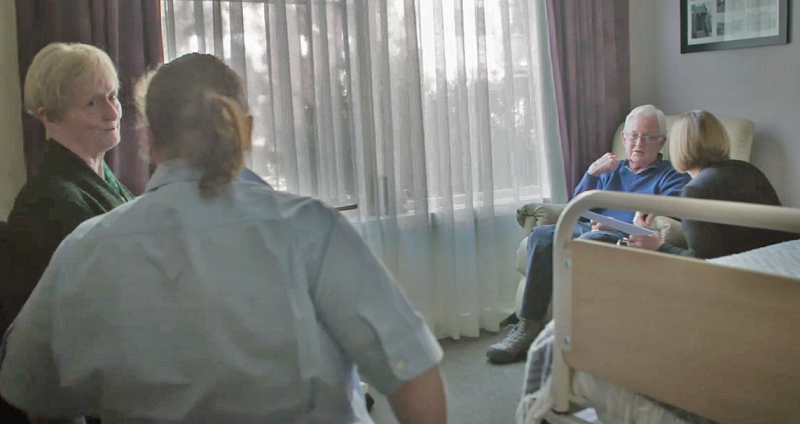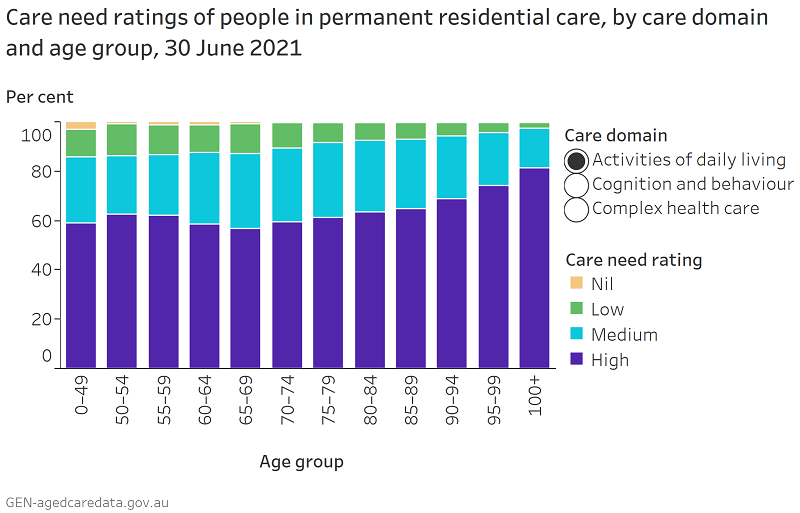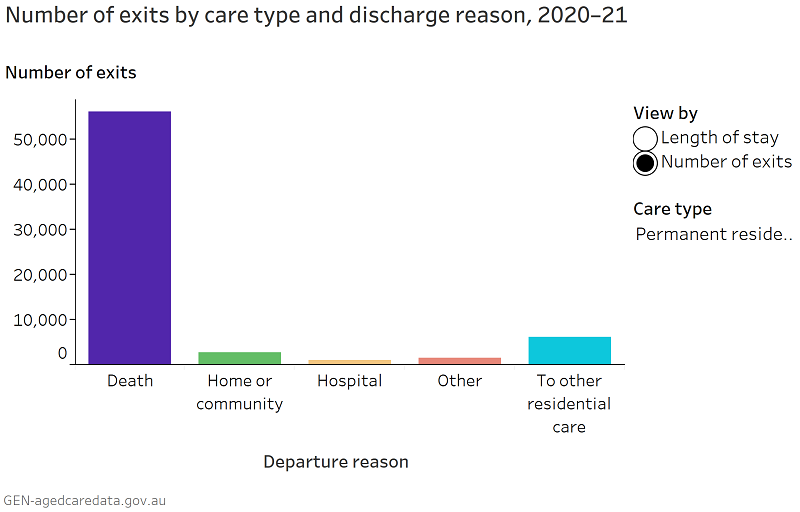Aged care nursing: the speciality of the future
An article written by Juliane Samara

Over the last four decades in Australia, there has been an evolution in aged care services from publicly funded nursing homes staffed primarily by registered nurses, to privately run ‘residential aged care facilities’ with varying levels of care. The aged care facilities of today are no longer a lifestyle choice for retirement and gentle ageing. Low care ‘hostels’ for older people needing minimal assistance with activities of daily living have transitioned to become high care facilities for the many residents with complex healthcare needs; they are sub-acute hospitals in all but name.

In 2021, most people in permanent residential aged care had high care need ratings in at least one care domain (66% for activities of daily living, 66% for cognition and behaviour, and 56% of people for complex health care). [1]
The staffing profile in residential aged care facilities consists of a combination of registered nurses, enrolled nurses and carers, with no mandated staff to resident ratios and minimal education requirements. Evidence nationally and internationally across a range of settings links staffing levels and skills directly to quality of care and clinical outcomes. [2-3] A recurring theme in the evidence presented to the Royal Commission into Aged Care Quality and Safety was that the staffing levels and skill mix within aged care is insufficient to support quality outcomes for residents.
Population projections suggest that by 2042, there will be between 6.4 and 6.7 million people aged over 65 (Australian Bureau of Statistics). In 2021, there were 2,488 people aged over 100 years or older living in residential aged care. With this shifting demographic comes an increasing demand for aged care facilities and nurses.
The importance of aged care nursing cannot be overstated. Aged care nurses are crucial to support the health and well-being of older people and ensuring that they receive the best possible care and quality of life in their final years. With the increasing demand for aged care services, we need to develop a workforce of qualified and skilled aged care nurses who play a critical role in providing care and supporting the physical, emotional and psychosocial well-being of older people.
In addition to providing direct clinical care for those with chronic and life-limiting illness and disabilities, aged care nurses also coordinate care services and provide essential supervision, mentoring and education to nursing assistants and carers to ensure the delivery of appropriate, effective and safe care. Their skilled assessment and development of care plans is essential to meet the national residential aged care quality indicators. They liaise with other healthcare professionals to manage and supervise complicated medication and clinical care regimes. They also communicate with, and provide education and support to, families and caregivers.

With almost 56,000 deaths each year in residential aged care facilities, palliative care is an increasing component of aged care nursing. Palliative care focuses on improving the quality of life for patients who are facing life-limiting illnesses, providing support for their families, and helping them navigate the complex emotions and decisions about continuing or withdrawing treatment at end of life. [4]
Aged care nurses of the future must have palliative care knowledge and skills so they can collaborate with the multidisciplinary team to manage pain and other symptoms and work closely with patients and their families to develop personalised care plans that address their unique needs and preferences at the end of life.
A strong workforce of highly skilled aged care nurses will ensure that older people have quality of life and live with dignity during their last days, and die a safe and comfortable death. This is the nursing speciality of the future.
References
- The Australian Institute of Health and Welfare (AIHW). People's care needs in aged care [Internet]. 2022 [Updated 2022 Jul 28; cited 2023 May 5].
- Dall'Ora C, Saville C, Rubbo B, Turner L, Jones J, Griffiths P. Nurse staffing levels and patient outcomes: A systematic review of longitudinal studies. Int J Nurs Stud. 2022 Oct;134:104311. doi: 10.1016/j.ijnurstu.2022.104311. Epub 2022 Jun 16.
- The Australian Institute of Health and Welfare (AIHW). People leaving aged care [Internet]. 2022 [Updated 2022 Jul 28; cited 2023 May 5].
- Armstrong F. Ensuring quality, safety and positive patient outcomes - Why investing in nursing makes sense (157kb pdf). Melbourne (VIC): Australian Nursing Federation; 2009.

Juliane Samara RN MNNP
Specialist Palliative Aged Care Nurse Practitioner
Calvary Clare Holland House